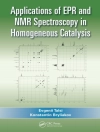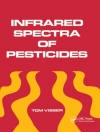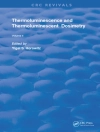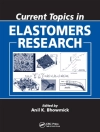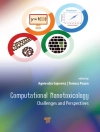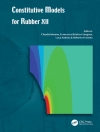Focusing on the molecular mechanisms of powerful naturally occurring agents and their implication for drug discovery, this timely book presents an overview of the most recent research advances in the field of bioactive natural products and natural drug formulations to combat today’s destructive diseases.
To this extent, the authors discuss the most severe neurological disorders in our modern civilization, such as Alzheimer’s, Parkinson’s and Huntington’s disease, as well as ischemic brain stroke and depression. The emerging diversity of active compounds is covered in detail, including flavonoids, cannabinoids and oleanolic acid, while experts in the field explain the chemistry, mode of action and clinical aspects of novel neuroprotective natural products. In each case, the benefits of treatments using natural products are addressed from the perspective of modern as well as traditional medicine.
With its multidisciplinary viewpoint, this is the ideal companion for medicinal and natural products chemists as well as neuroscientists, biochemists, pharmacologists, neurobiologists, and phytotherapists.
İçerik tablosu
List of Contributors xv
Dedication xix
Preface xxi
Editor Biography xxv
1 Neuroprotective Natural Products: Clinical Aspects and Modes of Action – An Overview 1
Goutam Brahmachari
1.1 Introduction 1
1.2 An Overview of the Book 1
1.3 Concluding Remarks 6
2 Neuroprotective Agents: An Overview on the General Modes of Action 7
Christina Volsko and Ranjan Dutta
2.1 Introduction 7
2.2 Neuroprotective Agents 7
2.3 Neurodegenerative Diseases 12
2.4 Neuroprotection in Common Neurodegenerative Diseases 13
2.5 Concluding Remarks 16
Acknowledgments 17
Abbreviations 17
References 17
3 Beneficial Upshots of Naturally Occurring Antioxidant Compounds against Neurological Disorders 23
Sukanya Saha, Pritam Sadhukhan, and Parames C. Sil
3.1 Introduction 23
3.2 Oxidative Stress 25
3.3 Neurological Disorders 28
3.4 Beneficial Effects of Different Antioxidants against Various Neurological Disorders 34
3.5 Concluding Remarks 40
Abbreviations 41
References 42
4 Natural Neuroprotectives for the Management of Parkinson’s Disease 57
Bharti Gaba, Shobhit Kumar, Shadab Md, Sanjula Baboota, Jasjeet. K. Narang, and Javed Ali
4.1 Introduction 57
4.2 Role of Antioxidants/Natural Neuroprotectives in PD 58
4.3 Concluding Remarks 74
Abbreviations 75
References 75
5 Neuroprotective Effect of Ayurvedic Preparations and Natural Products on Parkinson’s Disease 91
Anupom Borah, Amarendranath Choudhury, Rajib Paul, Muhammed K. Mazumder, and Swapnali Chetia
5.1 Introduction 91
5.2 Parkinsonian Symptoms and Ayurveda 92
5.3 Medicinal Plants in the Ayurvedic Formulation for Parkinson’s Disease Therapy 94
5.4 Concluding Remarks 97
Abbreviations 97
References 98
6 Lipid Peroxidation and Mitochondrial Dysfunction in Alzheimer’s and Parkinson’s Diseases: Role of Natural Products as Cytoprotective Agents 107
Carlos Fernández-Moriano, Elena González-Burgos, and Maria Pilar Gómez-Serranillos
6.1 Introduction 107
6.2 History and Context 117
6.3 Potential Therapeutic Agents with Natural Origin: Current Knowledge on the Discovery of Newer Drugs 119
6.4 Future Trends in Research 132
6.5 Concluding Remarks 133
Abbreviations 134
References 135
7 Marine-Derived Anti-Alzheimer’s Agents of Promise 153
Kapil Dev and Rakesh Maurya
7.1 Introduction 153
7.2 Identification of Potent Anti-Alzheimer’s Agents from Marine Sources 154
7.3 Molecules in Clinical Trials for Alzheimer’s Disease from Marine Sources 171
7.4 Concluding Remarks 172
Acknowledgments 172
Abbreviations 172
References 173
8 Natural Products against Huntington’s Disease (HD): Implications of Neurotoxic Animal Models and Transgenics in Preclinical Studies 185
Abhijit Dey
8.1 Introduction 185
8.2 Methodology 186
8.3 Neurotoxic In Vitro and In Vivo Anti-HD Models 188
8.4 Anti-HD Natural Products and Implications of HD Models 200
8.5 Synergism: A Novel Approach against Neurological Disorders 212
8.6 Discussion 213
8.7 Concluding Remarks 215
Abbreviations 215
References 218
9 Possible Role of Neuroprotectants and Natural Products in Epilepsy: Clinical Aspects and Mode of Action 247
Anil Kumar, Manveen Bhardwaj, and Harshpreet Kaur
9.1 Introduction 247
9.2 Global Prevalence of Natural Products in Epilepsy 248
9.3 Pathophysiology of Epilepsy 248
9.4 Role of Neurotransmitters in Neuronal Excitation 250
9.5 Role of Neuroprotectants in Seizures 252
9.6 Natural Plants against Epilepsy 256
9.7 Natural Plants Examined in Epilepsy 259
9.8 German Herbs in Epilepsy 262
9.9 Complement and Alternative Medicine 263
9.10 Marketed Formulation of Natural Products in India 264
9.11 Herbs That Induce Seizures 264
9.12 Interaction of Natural Products with Antiepileptic Drugs (AEDs) 264
9.13 Concluding Remarks 267
References 268
10 Neuroprotective Effects of Flavonoids in Epilepsy 279
Hossein Hosseinzadeh and Marjan Nassiri-Asl
10.1 Introduction 279
10.2 Natural Flavonoids with Antiepileptic Potential 281
10.3 Discovery and Development of Newer Agents 285
10.4 Concluding Remarks 286
Abbreviations 286
References 287
11 The Role of Noncompetitive Antagonists of the N-Methyl-d-aspartate (NMDA) Receptors in Treatment-Resistant Depression 293
Gianluca Serafini, Shawn Hayley, Mehdi Ghasemi, and Mario Amore
11.1 Introduction 293
11.2 Noncompetitive Antagonists of the NMDA Receptors: Ketamine and Its Mechanism of Action 294
11.3 Other Noncompetitive NMDA Antagonists: Selective Glu N2B Subunit NMDA Antagonists 297
11.4 Other Noncompetitive NMDA Antagonists: Glycine Binding Site Modulators 298
11.5 AMPA Receptor Activation: A Possible Adjunctive Antidepressant Role? 299
11.6 Discussion and Future Directions 300
11.7 Concluding Remarks 301
Abbreviations 302
References 302
12 Safety and Efficacy of Ashwagandha (Withania somnifera) 313
Shri K. Mishra, Bharathi A. Venkatachalapathy, and Hadi M. Khanli
12.1 Introduction 313
12.2 Ashwagandha 314
12.3 Discussion 317
12.4 Concluding Remarks 317
Abbreviations 318
References 318
13 Cannabinoids: A Group of Promising Neuroprotective Agents 321
Laura R. Caltana and Alicia Brusco
13.1 Introduction 321
13.2 The Cannabinoid System 322
13.3 Cannabinoids and Neuroprotection 325
13.4 Concluding Remarks 329
Abbreviations 330
References 330
Index 341
Yazar hakkında
After receiving his Ph.D. in 1997 at Visva-Bharati University (India), Goutam Brahmachari joined his alma mater and currently holds the position of a full professor of chemistry since 2011. Research interests of his group include green chemistry, organic synthesis and medicinal chemistry of natural products, as well as artificial compounds. With more than 18 years of experience in both teaching and research, he has produced nearly 160 scientific publications including original research papers, review articles, books and invited book chapters in the fields of natural products and green chemistry. He has authored/edited 18 books and more than 30 book chapters so far published by internationally reputed major presses. He is the Series Editor of the Book Series ‘Natural Product Drug Discovery’.


